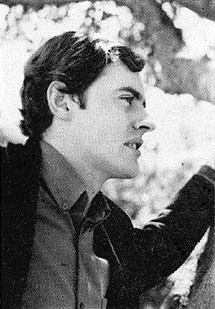". . . and it was for gold he made so bold, and not so long ago . . ." The
first Australian bushrangers were Englishmen and Irishmen - convicts
transported to the penal settlements of New South Wales and Van
Diemen's Land. Here, in the language of the day, they had bolted and
taken to the bush.
Governor
Lachlan Macquarie issued a proclamation in 1814 about bushrangers which
spoke of them as men who had "unlawfully absconded and fled from their
usual Habitations and Employments... into the Woods and retired
Places... with intent to support and maintain themselves by Rapine and
Violence... Idleness and Debauchery."
But
the convicts did not call them unlawful absconders; they sang of them
as men who "scorned to live in slavery or wear the convict chain." And
the poverty-stricken dungaree settlers did not care that they supported
themselves by rapine, but sang in their praise because they robbed "the
robber rich men." As for violence, the bushrangers were slow to kill
when compared with their fellow bandits of other lands and other times.
Though perhaps, in the end, many of them felt like the bushranger who
said from the dock of a court in Sydney, in 1839: "I've been all over
the country in my time without taking the life of anyone. I've been
baited like a bulldog and I'm only sorry now I didn't shoot every
tyrant in New South Wales."
As
the generation of convict bushrangers began to die out, their place was
taken by a new generation of young men - native born and bush bred.
Some of them were the sons of convicts. Some of them took to the
bushranging trade readily and early. Some of them drifted, or were
pushed, into bushranging only after early trouble with the law over
less serious crimes than robbery-under-arms; often, over cattle duffing
or other forms of stock stealing. The stealing of stock was naturally
regarded as a crime deserving harsh punishment by the wealthy graziers
who suffered from it most. But to bush workers and dungaree settlers it
hardly seemed a crime at all - especially since the fortune of many a
wealthy squatting family was founded, often enough in fact and even
more often in folklore, by a cattle duffing ancestor.
James
Macarthur, a wealthy landowner of Lachlan Macquarie's day, pointed out
of the bushrangers that "the sympathies of the numerical majority of
the inhabitants are in favour of the criminals, whom they would rather
screen from punishment, than deliver over to justice." So it remained
until the day when Ned Kelly - last of the famous bushrangers - was
hanged in Melbourne in 1880, amidst the fears of some respectable
citizens that his sympathisers would raise a revolt.

